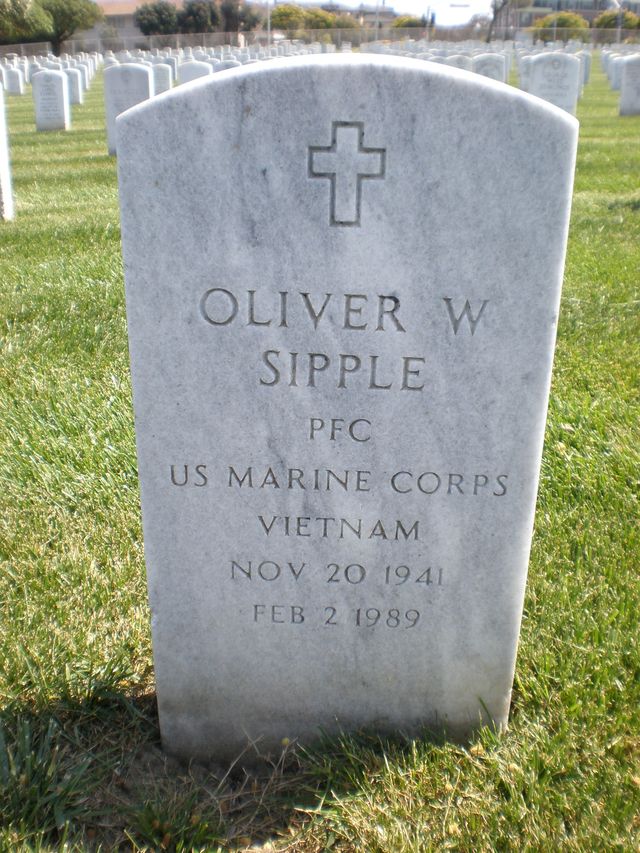Heroism can be a dangerous thing for those that don’t “fit the mold.”
This is a sentiment Robert Kesten, executive director of the Fort Lauderdale Stonewall Museum, used to describe the story of Oliver “Billy” Sipple, a closeted gay man who was outed by the media after preventing an assassination attempt on a sitting president.
“It was a surprise that a gay man could save a President of the United States, because it wasn't in our frame,” he said. “It seemed out of context.”
Sipple joined 3,000 people on Sept. 22, 1975 to catch a glimpse of former President Gerald Ford leaving a San Francisco hotel.
As Ford waved to the crowd on his way to a limousine, Sipple noticed a woman, Sara Jane Moore, in front of him pull out a .38 caliber pistol and aim it at the former president. He lunged at her arm just as she pulled the trigger –– the gun fired, but the bullet missed Ford and ricocheted off the front of the hotel.
Sipple had saved the former president’s life, and only one person suffered a mild injury by the ricocheted bullet.
To Sipple, he acted in a way every other ordinary American would. To others, he was the new face of the gay rights movement that was prominent in San Francisco.
Sipple was a closeted man before he saved Ford’s life, as his identity was private from his family. Two days after the incident, someone tipped off the San Francisco Chronicle, revealing he was gay.
Some believe it was gay rights activist Harvey milk, who uttered a famous quote following Sipple’s actions: “For once, we can show that gays do heroic things.”
But Sipple didn’t want the world to know who he was, let alone his sexuality. He would later file a $15 million lawsuit against multiple news outlets for invasion of privacy, but it was ultimately dismissed.
Sipple’s family was harassed by neighbors and the media. No one wanted to discuss his status as a veteran or his heroic actions of saving Ford’s life. They wanted to stir up drama surrounding his sexuality.
Despite his attempts to patch things up with his family, Sipple became estranged from them. His father told him he wasn’t welcome at his mother’s funeral in 1979.
Though his brother said he eventually got back on good terms with his family, Sipple suffered greatly from the mental distress he was put through. His overall health declined, and he drank heavily at local gay bars.
When drinking, he allegedly expressed regret for his actions due to the public and social strain he was put through. Sipple was found dead in his apartment at 47 years old on Feb. 2, 1989. In his apartment was a framed letter from Ford thanking Sipple for his actions.
Though a reason hasn’t been confirmed, Sipple was never invited to The White House following his act of heroism.
Kesten, the Fort Lauderdale Stonewall Museum executive director, said Sipple’s story teaches society to be aware of the implications of divulging sensitive information.
But many students, especially in Florida, aren’t learning the lessons rooted in LGBTQ historical moments like Sipple’s.
Gov. Ron DeSantis introduced a flurry of bills, including HB 1069, over the past few years that targeted public school curriculums mentioning LGBTQ or race-related topics.
Kesten said history isn’t something that should be modified.
“History is the entire fabric that's woven together of everybody's stories,” he said. “And when we selectively remove threads, and we selectively determine what threads are going to be read into the history books, we are interfering with people truly understanding what history was.”
The effects of modifying history push narratives that create ignorance, Kesten said.
“The history of [marginalized communities] is left out intentionally by people who believe that history is their history, and they write the books,” Kesten said. “And that means we have a very distorted view of what the world is like, and that distortion is what brings us to the crises that we see today and every day.”
The struggle to educate people on LGBTQ history isn’t just external, Malcolm Lazin, Equality Forum executive director, said.
“We're a community that really does not know its own history,” Lazin said.
Sipple was featured as an icon in 2007 in Equality Forum’s annual tradition of listing 31 prominent queer figures during LGBTQ History Month in October.
Lazin said stories like Sipple’s are important to learn about because it highlights a broader diversity embedded within the LGBTQ community that many people don’t recognize.
“Billy Sipple is a role model, he's a national hero,” Lazin said. “Most people don't think of gay folks as having served in our military. Like all other Americans, we've made heroic and important contributions to the nation.”
Photo by BrokenSphere, via Wikimedia Commons.
RELATED







